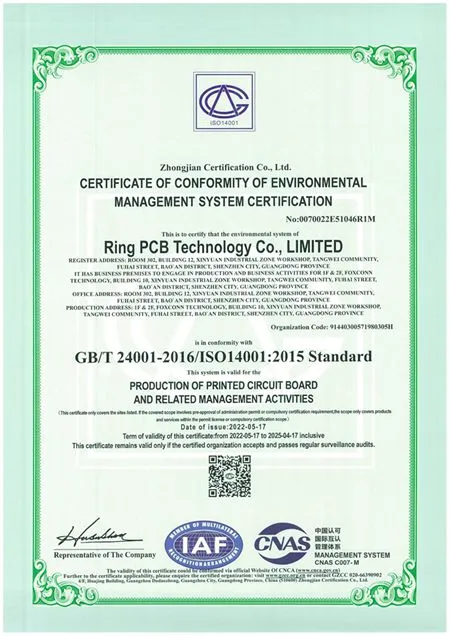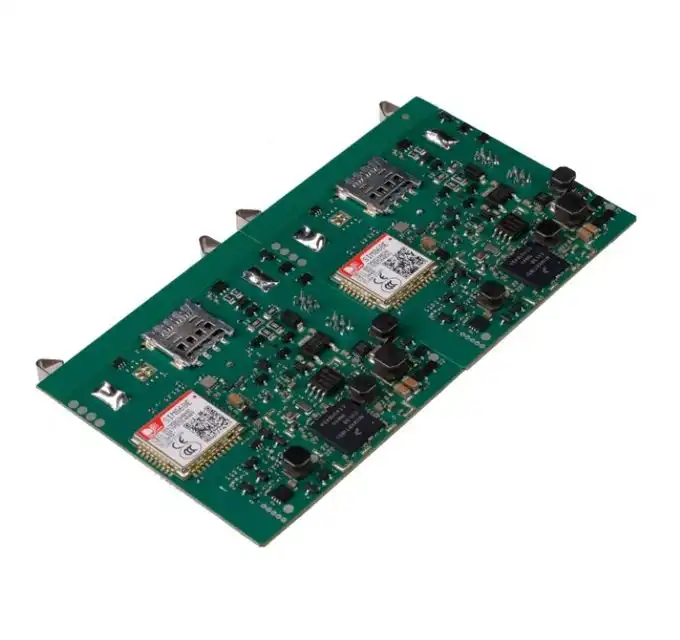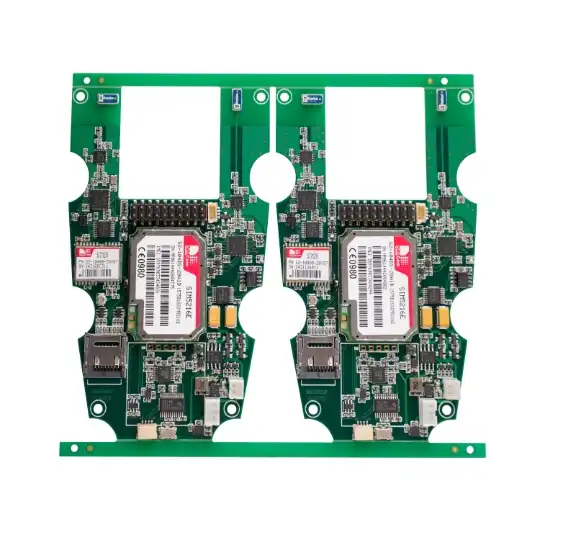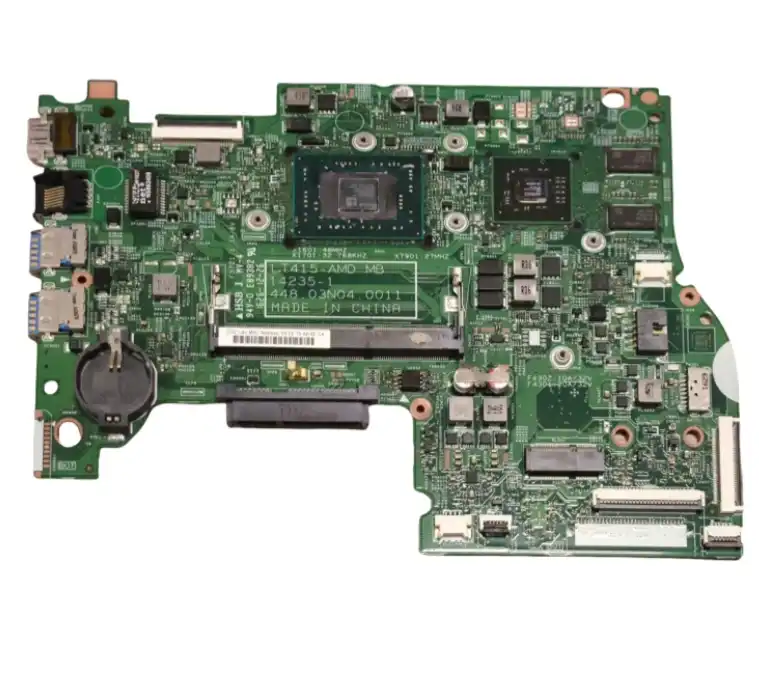Why ISO Certified PCB Assembly Matters for Your Product?
ISO certified PCB assembly is crucial for your product's quality, reliability, and market competitiveness. It ensures that your printed circuit boards are manufactured under stringent quality control standards, reducing defects and enhancing overall performance. ISO certification demonstrates a commitment to continuous improvement and customer satisfaction, which can significantly boost your product's credibility in the market. Moreover, it often leads to cost savings through improved efficiency and reduced waste, ultimately contributing to your product's success and longevity in today's demanding electronics industry.
Understanding ISO Certification in PCB Assembly
What is ISO Certification?
ISO certification is a globally recognized standard that ensures organizations meet specific quality management requirements. In the context of PCB assembly, ISO certification typically refers to ISO 9001, which sets the criteria for a quality management system. This certification demonstrates that a company consistently provides products and services that meet customer and regulatory requirements.
The Role of ISO Certification in PCB Manufacturing
In PCB assembly, ISO certification plays a pivotal role in maintaining high-quality standards throughout the manufacturing process. It encompasses various aspects of production, including:
- Quality control procedures
- Documentation and record-keeping
- Employee training and competence
- Customer satisfaction monitoring
- Continuous improvement initiatives
By adhering to these standards, ISO certified PCB assembly providers can ensure consistent quality, reduce errors, and improve overall efficiency in their operations.
Key ISO Standards Relevant to PCB Assembly
While ISO 9001 is the most common certification in PCB assembly, other relevant standards include:
- ISO 14001: Environmental management
- ISO 13485: Medical device quality management
- IATF 16949: Automotive quality management
These additional certifications can be particularly important depending on your product's specific industry or application.
Benefits of Choosing ISO Certified PCB Assembly for Your Product
Enhanced Quality Assurance
One of the primary advantages of opting for ISO certified PCB assembly is the assurance of high-quality products. ISO certification mandates rigorous quality control processes, including:
- Comprehensive testing and inspection procedures
- Strict adherence to industry standards and specifications
- Implementation of statistical process control
- Regular calibration of equipment and tools
These measures significantly reduce the likelihood of defects and ensure that your PCBs meet or exceed your quality expectations.
Improved Consistency and Reliability
ISO certified PCB assembly providers follow standardized processes, resulting in greater consistency across production runs. This consistency translates to improved reliability of your final product, as you can expect the same high level of quality with each order. Consistent quality not only enhances your product's performance but also contributes to customer satisfaction and brand loyalty.
Cost Savings and Efficiency
While ISO certification may seem like an added expense, it often leads to cost savings in the long run. ISO certified PCB assembly facilities typically operate more efficiently due to:
- Streamlined processes and reduced waste
- Fewer defects and rework requirements
- Improved inventory management
- Enhanced employee productivity
These efficiencies can result in lower production costs, which may be passed on to you as the customer or reinvested in further quality improvements.
Compliance with Industry Regulations
Many industries have strict regulatory requirements for electronic components. Choosing an ISO certified PCB assembly provider ensures that your products comply with relevant industry standards and regulations. This compliance can be particularly crucial in sectors such as aerospace, automotive, and medical devices, where safety and reliability are paramount.
How ISO Certified PCB Assembly Enhances Your Product's Market Position?
Building Customer Trust and Confidence
In today's competitive market, customer trust is invaluable. ISO certification serves as a mark of quality that can significantly enhance your product's credibility. When customers see that your PCBs are assembled by an ISO certified provider, they can have greater confidence in your product's reliability and performance. This trust can lead to increased customer loyalty and positive word-of-mouth recommendations.
Meeting Global Market Requirements
ISO certification is internationally recognized, which can be a significant advantage if you're looking to expand into global markets. Many international customers and partners prefer or even require suppliers to have ISO certification. By choosing ISO certified PCB assembly, you position your product to meet global standards and requirements, potentially opening up new market opportunities.
Competitive Advantage
In a crowded marketplace, ISO certification can set your product apart from competitors. It demonstrates your commitment to quality and customer satisfaction, which can be a powerful differentiator. This competitive edge can be particularly valuable when bidding on contracts or entering new markets where quality assurance is a key consideration.
Facilitating Continuous Improvement
ISO certification is not a one-time achievement but an ongoing process of improvement. ISO certified PCB assembly providers are required to continually assess and enhance their processes. This commitment to continuous improvement can benefit your product in several ways:
- Access to the latest manufacturing technologies and techniques
- Ongoing refinement of quality control processes
- Proactive identification and resolution of potential issues
- Adaptation to evolving industry standards and customer needs
By partnering with an ISO certified provider, you ensure that your product benefits from these ongoing improvements, helping it stay competitive in a rapidly evolving market.
Risk Mitigation
ISO certification helps mitigate various risks associated with PCB assembly, including:
- Quality issues that could lead to product recalls or customer dissatisfaction
- Supply chain disruptions due to poor quality control
- Legal and regulatory compliance risks
- Reputational damage from substandard products
By reducing these risks, ISO certified PCB assembly can help protect your brand reputation and ensure the long-term success of your product in the market.
Conclusion
Choosing ISO certified PCB assembly for your product is a strategic decision that can yield significant benefits. From enhanced quality and reliability to improved market positioning and risk mitigation, the advantages are clear. As the electronics industry continues to evolve and competition intensifies, partnering with an ISO certified PCB assembly provider can give your product the edge it needs to succeed. By prioritizing quality and embracing the standards set by ISO certification, you're not just investing in better PCBs – you're investing in the future success of your product and your brand.
ISO9001 & IATF16949: Quality backed by certifications | Ring PCB

Ring PCB offers unparalleled quality assurance through our self-owned factory and full supply chain control. Our vertical integration ensures meticulous oversight from raw material procurement to final testing. Our triple quality assurance process, combining AOI, impedance testing, and thermal cycling, achieves an industry-leading defect rate of <0.2%.
With global certifications including ISO9001, IATF16949, and RoHS compliance, we deliver exceptional PCB assembly solutions. Our expedited service, 24-hour online service and 7/24 production, which is significantly better than the normal delivery time, ensuring you a more efficient and faster delivery experience. For more information, contact us at [email protected].
References
1. International Organization for Standardization. (2015). ISO 9001:2015 Quality management systems — Requirements.
2. IPC - Association Connecting Electronics Industries. (2018). IPC-A-610 Acceptability of Electronic Assemblies.
3. Prasad, R. (2013). Surface Mount Technology: Principles and Practice. Springer Science & Business Media.
4. Coombs, C. F. (2008). Printed Circuits Handbook. McGraw-Hill Education.
5. Montrose, M. I. (2000). EMC and the Printed Circuit Board: Design, Theory, and Layout Made Simple. IEEE Press.

Welcome to Ring PCB! Share your inquiry, and receive a tailored quotation!

Ring PCB, your trusted partner for PCB & PCBA Full Turnkey Solutions



